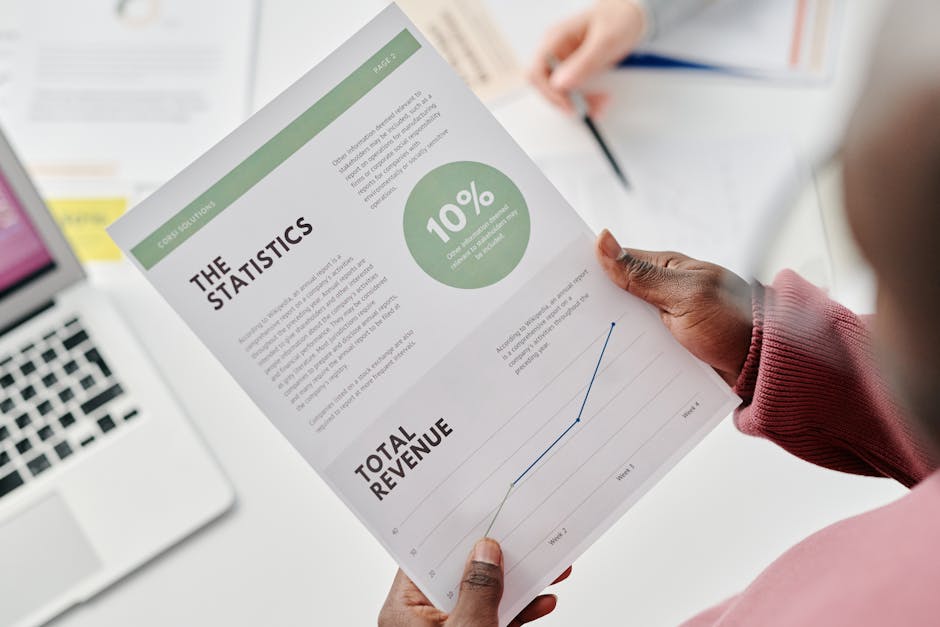Introduction
Overview of Data Analytics Companies
In today’s information-driven landscape, data analytics companies play a pivotal role in transforming raw data into actionable insights. These organizations specialize in examining complex datasets to identify patterns, trends, and correlations that help businesses make informed decisions. From supporting marketing strategies to enhancing operational efficiency, data analytics firms offer a plethora of services tailored to meet diverse industry needs. data analytics companies in usa Some of the leading data analytics companies in the USA are recognized for their innovation and expertise. They utilize advanced technologies such as machine learning and artificial intelligence to elevate their analytical capabilities. With the rise of big data, businesses are increasingly turning to these specialized companies for guidance on data-driven decision-making.
Importance of Data Analytics
The significance of data analytics cannot be overstated. In a world brimming with information, companies that harness the power of analytics often gain a competitive edge. Here are a few reasons why data analytics is crucial:
- Informed Decision-Making: With well-analyzed data, organizations can make decisions grounded in factual insights rather than intuition.
- Enhanced Efficiency: Analytics helps identify inefficiencies and areas for improvement, leading to streamlined operations.
- Customer Understanding: Companies can gain deeper insights into customer behavior, preferences, and trends, enabling personalized marketing strategies.
For instance, a retail company employing data analytics may track customer purchase history to create tailored advertisements, effectively boosting sales. This illustrates how data analytics fosters a data-centric culture that empowers businesses to thrive. As organizations recognize the value of data-driven strategies, the demand for the best data analytics companies in the USA continues to rise, marking an essential shift toward a more analytical future.

Criteria for Top-Rated Data Analytics Companies
Industry Reputation
When evaluating the top-rated data analytics companies, one of the foremost criteria is their industry reputation. A company’s standing in the marketplace often reflects its reliability, quality of service, and expertise in data analytics. Those that have established a strong reputation typically do so through innovation, successful project delivery, and thought leadership in the analytics space. For example, a company known for pioneering machine learning methods may have a leg up on its competitors. Reputation can also be influenced by:
- Awards and Recognition: Many leading firms receive accolades from industry bodies, highlighting their contributions and excellence in analytics.
- Partnerships and Collaborations: Strategic alliances with technology giants or prestigious organizations can enhance a company’s reputation and credibility.
- Sustainability Practices: Companies that adhere to ethical data handling and demonstrate a commitment to sustainability often earn trust within the industry.
Client Reviews and Testimonials
Another critical factor in assessing data analytics firms is the feedback from current and past clients. Client reviews and testimonials offer valuable insights into a company’s performance and customer service. Here’s how to gauge this:
- Online Platforms: Websites like Clutch and G2 feature detailed customer reviews, giving potential clients a glimpse into a company’s strengths and weaknesses.
- Case Studies: Many companies showcase success stories that highlight their expertise and outcomes achieved for various clients.
Personal recommendations can also carry significant weight. A colleague sharing a positive experience with a specific analytics company can influence decisions greatly. In sum, a strong industry reputation coupled with positive client feedback is essential for identifying the best data analytics companies, ensuring businesses can choose a partner equipped to meet their analytics needs effectively.

Top Data Analytics Companies in the USA
Company A
Among the best data analytics companies in the USA, Company A has carved out a noteworthy reputation for its exceptional services. Known for its innovative approach, Company A primarily focuses on industries such as healthcare and finance, providing tailored solutions that cater to the unique challenges these sectors face. Their offerings include:
- Data Visualization Tools: These tools help organizations interpret complex data through intuitive graphs and dashboards.
- Predictive Analytics: Company A utilizes advanced algorithms to forecast future trends, enabling businesses to stay one step ahead.
A standout example of their work can be seen in their partnership with a leading healthcare provider, where they improved patient outcomes by analyzing treatment data.
Company B
Another key player in the landscape of data analytics is Company B. This firm has built a robust portfolio by leveraging cutting-edge technologies such as big data analytics and machine learning algorithms. With a special focus on retail and financial services, Company B delivers solutions that enhance operational efficiency and customer engagement. Key services from Company B include:
- Big Data Analytics: With the ability to process vast volumes of data in real-time, they help clients make data-driven decisions almost instantaneously.
- Machine Learning Algorithms: These algorithms empower companies to develop predictive models that optimally cater to market demands.
For instance, Company B successfully helped a retail chain increase seasonal sales by accurately predicting customer purchasing behavior using their analytics tools. The combination of Company A’s specialized initiatives and Company B’s technological prowess establishes both as leading options for businesses looking to harness the power of data analytics in the USA.

Company A: Services and Solutions
Data Visualization
Company A offers a robust suite of data visualization services designed to transform complex datasets into visually compelling narratives. In an age where information is paramount, the ability to distill raw data into clear, understandable visuals can make a significant difference in decision-making. Imagine a healthcare provider trying to analyze patient recovery rates. With Company A’s visualization tools, they can easily see trends and identify areas needing improvement. Their services include:
- Interactive Dashboards: These allow clients to explore metrics in real-time, adjusting parameters to uncover deeper insights.
- Custom Reports: Tailored reports that deliver key performance indicators (KPIs) relevant to a client’s specific goals or challenges.
By leveraging such visualizations, businesses can facilitate discussions and decisions that are grounded in factual data instead of assumptions.
Predictive Analytics
When it comes to predictive analytics, Company A excels at helping organizations anticipate future trends and behaviors. This service is invaluable across various industries, as it allows businesses to plan strategically rather than reactively. For instance, a financial institution partnered with Company A to predict client behaviors during an economic downturn. The predictive models developed by Company A enabled them to proactively adjust their services and retain customer loyalty. Key offerings include:
- Machine Learning Models: These algorithms analyze historical data to forecast future outcomes accurately.
- Scenario Analysis: Clients can simulate different scenarios to understand potential risks and opportunities.
By focusing on predictive analytics, Company A empowers organizations to make informed, proactive decisions that enhance their market position. Through these innovative services, companies gain confidence in their data-driven strategies, reinforcing Company A’s position as a top choice in the analytics landscape.

Company A: Case Studies
Healthcare Industry
Company A has made significant strides in the healthcare sector, demonstrating the profound impact of its data analytics solutions. One compelling case was with a regional hospital aiming to improve patient care and reduce readmission rates. The hospital engaged Company A to analyze years of patient data, focusing on various variables, such as treatment plans and demographic information. Through their advanced predictive analytics tools, Company A was able to identify specific factors leading to higher readmission rates. Their approach included:
- Developing Predictive Models: These models offered insights into which patients were at a higher risk of readmission.
- Visualizations: Company A created dashboards that allowed healthcare providers to monitor trends in real-time, fostering proactive patient management.
As a result, the hospital implemented targeted intervention strategies, leading to a remarkable 25% reduction in readmissions within just six months. This partnership not only enhanced patient outcomes but also optimized the hospital’s operational efficiency.
E-commerce Sector
In the fast-paced world of e-commerce, Company A’s expertise has proved invaluable as well. A notable case involved a major online retailer struggling with customer retention amidst growing competition. Company A worked closely with the client to analyze purchasing data and customer behaviors. Their tailored solutions included:
- Customer Segmentation: Using clustering algorithms, Company A identified distinct customer groups, enabling personalized marketing strategies.
- Sales Forecasting: By employing predictive analytics, they helped the retailer anticipate seasonal trends, ensuring optimal inventory levels.
The results were impressive—a 30% increase in customer retention and a significant rise in sales during peak seasons. Company A’s data-driven initiatives not only helped the retailer tackle immediate challenges but also laid a foundation for ongoing growth and competitive advantage in the e-commerce landscape. Through these case studies, it’s clear that Company A consistently delivers impactful solutions that drive success across various industries.

Company B: Services and Solutions
Big Data Analytics
Company B stands out in the realm of data analytics, especially known for its expertise in big data analytics. In an era where businesses generate vast amounts of data daily, the ability to process and analyze this information is critical for informed decision-making. For instance, consider a financial services provider that was overwhelmed by data generated from transactions, customer interactions, and market trends. Company B came to the rescue by implementing robust big data analytics solutions. Their offerings included:
- Real-Time Data Processing: Allowing organizations to analyze data as it arrives, providing immediate insights into customer behavior and market dynamics.
- Comprehensive Data Integration: Merging various data sources into a unified view, enabling businesses to gain holistic insights.
With these tools, the financial service provider could identify patterns in customer spending behavior almost instantly, allowing them to tailor their services to meet demands better. This approach helped them discover previously hidden opportunities, leading to a measurable increase in customer satisfaction and loyalty.
Machine Learning Algorithms
In addition to big data analytics, Company B excels in developing sophisticated machine learning algorithms that empower organizations to make predictive data-driven decisions. These algorithms are critical for automating processes and enhancing predictive accuracy. A notable example comes from a retail client who wanted to optimize their inventory management. Company B designed machine learning models that analyzed historical sales data, seasonal trends, and various promotional strategies. Their services included:
- Predictive Modeling: These models forecasted product demand, ensuring that the retailer stocked the right amounts at the right times.
- Recommendation Engines: By analyzing customer purchasing behaviors, they provided personalized product suggestions that significantly increased sales.
As a result of implementing these machine learning algorithms, the retailer saw a dramatic reduction in stockouts and excess inventory, ultimately saving costs and improving customer experience. Through its innovative services, Company B not only addresses immediate challenges but also positions clients for sustained growth in an increasingly data-driven world.

Company B: Case Studies
Financial Services
Company B’s impact in the financial services sector is evident through its collaboration with a major bank that faced significant challenges in fraud detection. With the increased sophistication of fraudulent activities, traditional methods were falling short. The bank decided to partner with Company B to enhance its security measures through advanced analytics. Company B implemented cutting-edge machine learning algorithms to scrutinize transaction patterns, identify anomalies, and flag potential fraud. Their approach included:
- Anomaly Detection: By training the model on historical transaction data, Company B helped the bank pinpoint unusual patterns indicative of fraud.
- Real-Time Alerts: Implementing a real-time monitoring system ensured that any suspicious activities were flagged immediately, drastically reducing response times.
This innovative solution led to a 40% increase in potential fraud detection rates, significantly protecting the bank’s assets and enhancing customer trust. The bank not only saved money by preventing fraudulent transactions but also improved its customer retention rates, demonstrating the lasting impact of Company B’s solutions.
Retail Sector
In the retail sector, Company B has also made a significant mark through its engagement with a leading e-commerce platform struggling with inventory management. With rapid sales fluctuations and changing consumer preferences, accurately predicting demand was essential. Company B stepped in with its big data analytics and machine learning expertise. Their initiatives involved:
- Sales Forecasting Models: Utilizing historical sales data and external factors (like seasonal events) to predict future demand more accurately.
- Inventory Optimization: Providing actionable insights that helped the retailer maintain optimal stock levels and reduce excess inventory.
This partnership yielded impressive results, including a 30% decrease in overstock situations and improved sales figures during peak seasons. The retailer benefited from a more responsive inventory system, ensuring they could meet customer demands without overcommitting resources. These case studies illustrate how Company B not only addresses critical challenges but also empowers organizations to achieve strategic advantages in highly competitive sectors.

Comparison of Company A and Company B
Technology Stack
When assessing the strengths of Company A and Company B, their technology stacks offer distinct perspectives on how they approach data analytics. Company A utilizes a blend of traditional analytics tools and modern technologies, focusing heavily on user-friendly interfaces and real-time data visualization. Some key components of their stack include:
- Tableau and Power BI for data visualization
- Python and R for statistical analysis and predictive modeling
- SQL databases for structured data management
This combination allows Company A to deliver intuitive dashboards that empower users to make decisions quickly, particularly in sectors like healthcare. In contrast, Company B leans more towards advanced analytics capabilities, heavily investing in big data technologies and machine learning frameworks. Their technology stack features:
- Apache Hadoop and Spark for managing large datasets
- TensorFlow and Scikit-learn for machine learning algorithms
- NoSQL databases such as MongoDB for non-relational data management
This advanced stack positions Company B well for handling vast amounts of data, making them a go-to for clients in financial services and e-commerce.
Client Portfolio
Client portfolios further highlight the distinct niches each company serves. Company A primarily focuses on industries like healthcare, non-profits, and education, working with organizations looking to enhance their operational efficiencies and patient outcomes. For example, a notable client was a regional hospital that sought to reduce readmission rates through predictive insights. On the other hand, Company B has a diverse clientele, prominently featuring retail giants and financial institutions. Their work with a leading e-commerce platform to optimize inventory illustrates their capability in dynamic markets where timely insights are essential. In summary, while both Company A and Company B deliver exceptional data analytics services, their distinct technology stacks and client portfolios reflect their unique strengths and industry specialties, allowing organizations to choose the right partner for their specific needs.

Future Trends in Data Analytics Industry
Artificial Intelligence Integration
As the data analytics landscape continues to evolve, one of the most significant trends is the integration of artificial intelligence (AI) into analytic processes. AI technologies bring the power of automation and advanced algorithms to the forefront, enhancing the capabilities of traditional analytics. For instance, imagine a retail company using AI to analyze customer behavior. Instead of merely looking at purchase history, AI can predict future buying patterns by analyzing browsing habits, social media interactions, and demographic data. This trend includes:
- Enhanced Predictive Analytics: AI-powered tools can identify trends and patterns more accurately than traditional methods.
- Natural Language Processing (NLP): This technology allows businesses to analyze customer feedback and sentiments, making it easier to tailor products and services.
The benefits are tremendous. Companies that adopt AI technologies can anticipate market shifts, improve customer experiences, and drive growth effectively, establishing a competitive advantage.
Data Privacy and Security Concerns
However, with these advancements come significant challenges, particularly regarding data privacy and security. As organizations collect and analyze more data than ever, the risks associated with data breaches and misuse are heightened. Recent high-profile data breaches have underscored the importance of robust security measures, prompting companies to adopt stricter guidelines. Key considerations include:
- Enhanced Compliance: Organizations must stay updated on regulations like GDPR and CCPA, ensuring they meet legal standards for data protection.
- Investing in Cybersecurity: Businesses are increasingly investing in advanced cybersecurity measures, such as encryption, to safeguard sensitive information.
In a world where data is both an asset and a liability, organizations must balance the pursuit of advanced analytics with a commitment to ethical data use. As companies navigate these future trends, the intersection of AI integration and data privacy will shape the analytics landscape, making it essential for businesses to stay ahead of the curve.data analytics companies in usa

